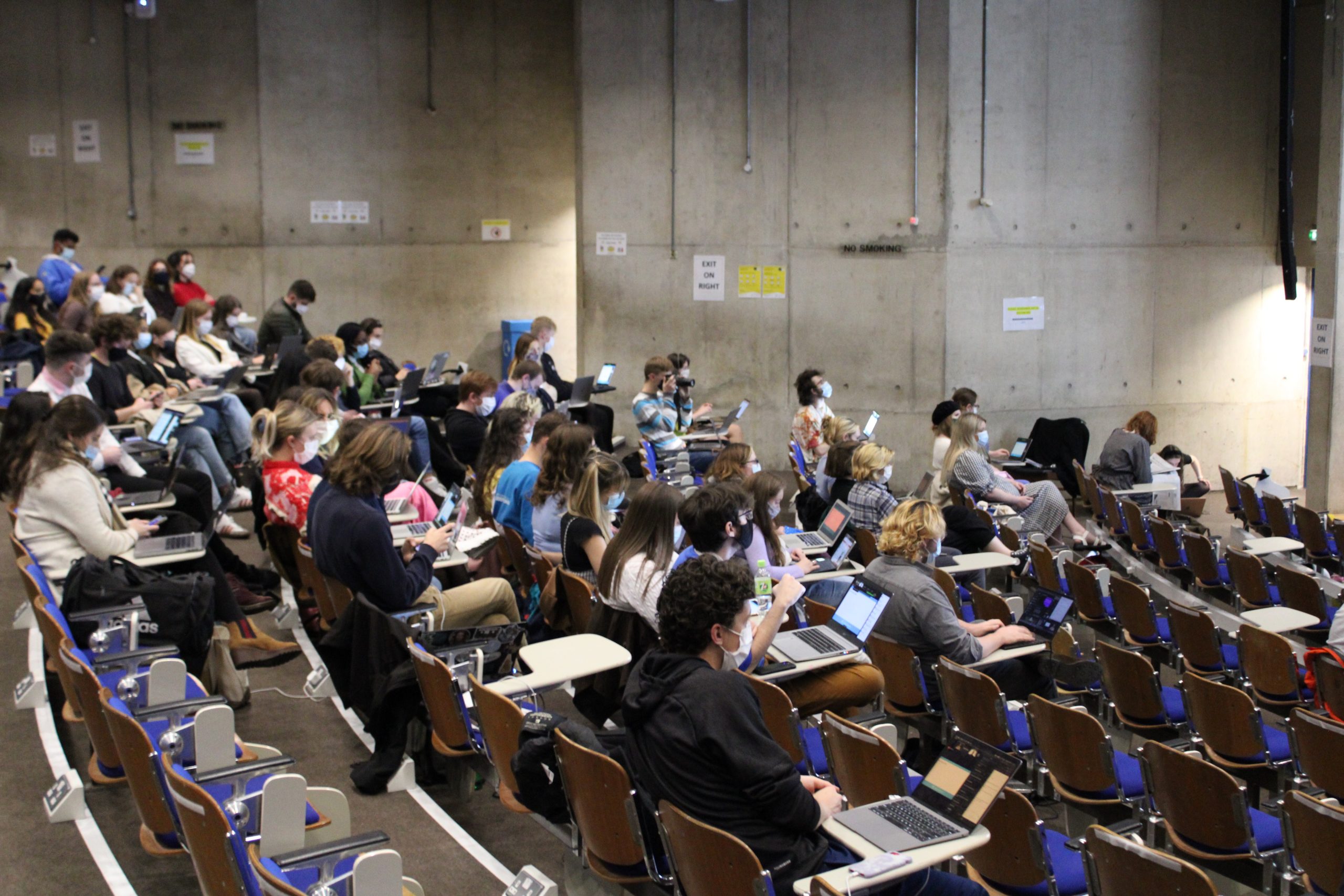Trinity College Dublin Students’ Union (TCDSU) narrowly failed to pass a vote to hold a referendum on amending the wording of a section of its constitution concerning the political nature of the union.
The motion suggested a referendum to change the wording of Section 1.4 of the constitution, which mandates the union to pursue its aims and principles in a manner that is “independent of any political, racial or religious ideology”, to one which mandates the it to pursue goals “in a radical and egalitarian way, without intervention or control by outside parties”.
56 voted in favour while 30 voted against (65% and 35% respectively). A motion to hold a referendum requires 66.6% of votes to pass.
The motion was proposed by School of Languages, Literatures and Cultural Studies (SLLCS) Convenor Nicholas Evans and seconded by several students including TCDSU President László Molnárfi and Citizenship Officer Ella Mac Lennan.
Speaking to Trinity News after council, Evans said “it’s a shame” the referendum will not take place.
“This body is historically elitist, historically exclusionary, and to almost get there to almost get to a democratic vote, it is really sad,” he said.
“The [Constitutional Review Working Group] will hopefully do something about it.”
Speaking in favour of the motion before the vote, Evans said: “Of all the misspelt words, grammar errors and vague sentences in our constitution, this is by far the most vague.”
Evans made reference to the success of the Book of Kells blockade in preventing further rent increases for College accommodation, saying that the student body “denied the school money because [we] didn’t agree with their policies”.
A number of procedural motions were raised during the debate including a procedural motion K to move the motion to next Council and a procedural motion E to amend the wording of the motion to replace the word “radical” with “political”. Both of these procedural motions failed to pass.
Evans urged those who opposed the change of wording to let students decide for themselves in a referendum.
“I think that the students of this college are ready for this – everybody is ready for a more radical union,” he said.
Omar Saood, who spoke against the motion, said he was concerned that the proposed change in wording may allow for a situation where a decision made by the majority of students may result in negative implications for a minority group.
STEM Convenor Ruaidhrí Saulnier also asked whether this wording would allow future student representatives to act “in a religious way”.
Evans said the union will remain “a democratic body” on any decisions made in its stances in the future.
TCDSU President László Molnárfi said the union should be able to “call out” the government if it is believed to be acting against students’ interests.
He also pointed out that the Electoral Commission asked sabbatical officers to avoid using the term “neoliberal” to refer to government policies, describing it as an action that is “not constitutionally valid” under their remit.






